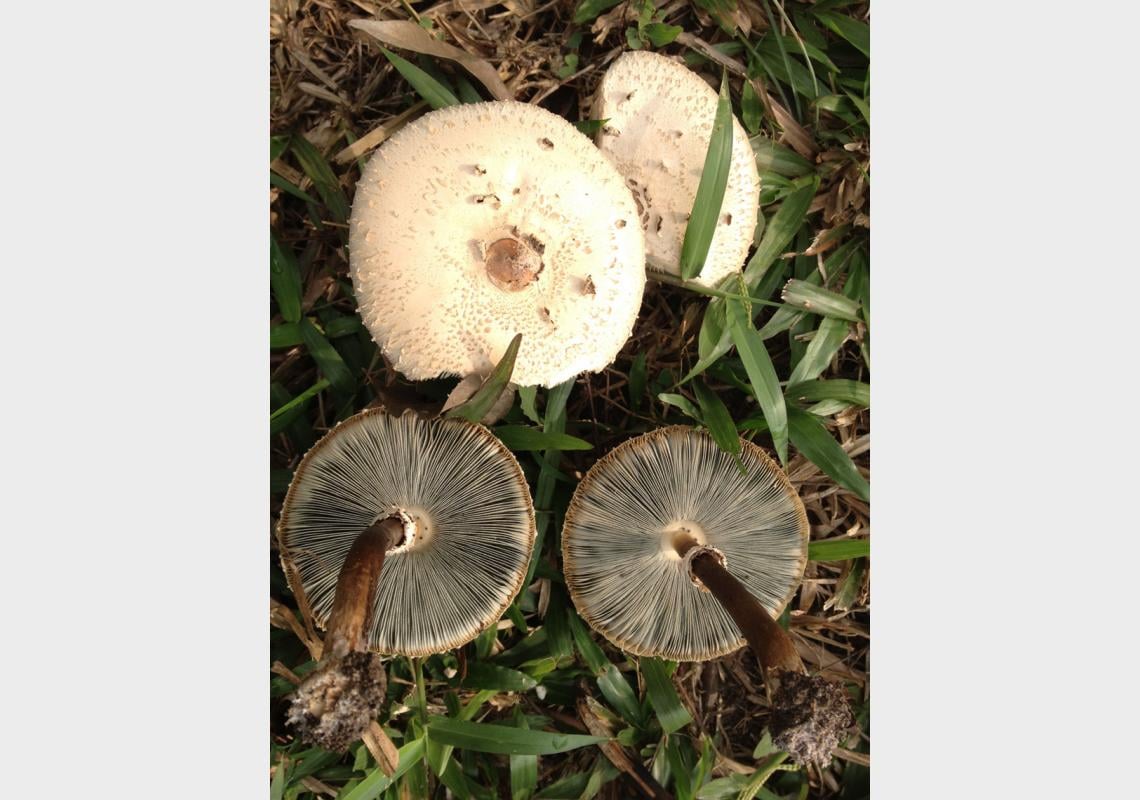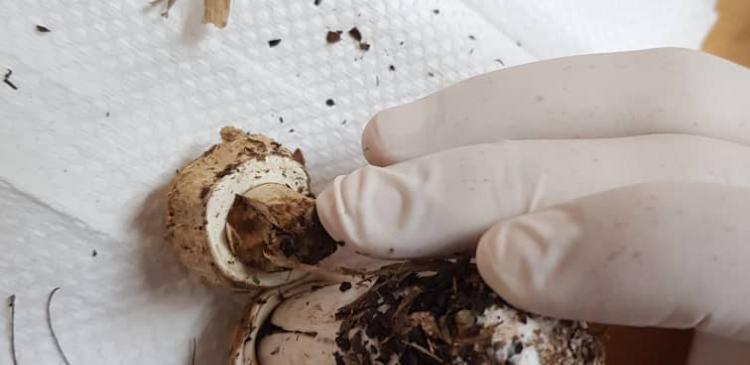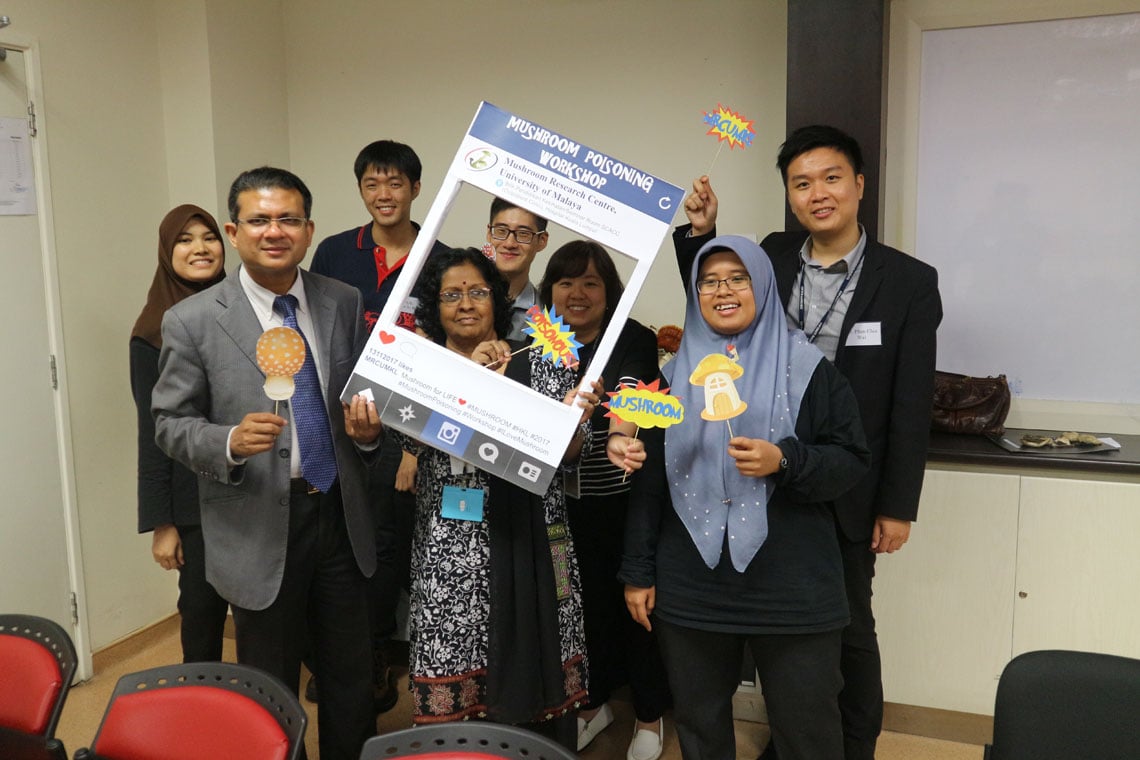The culprit behind almost all mushroom poisoning cases in Malaysia - Chlorophyllum molybdites.
Eating mushrooms can be good for your health. Mushrooms contain unique polysaccharides that exhibit immune-modulating effects. Most importantly, mushrooms are rich in selenium, which most green plants do not have.
A study done by researchers at the University of Malaya found that including mushrooms in daily diet can help improve the health of brain as it may enhance cerebral nerve growth and significantly cut the risk of dementia and Alzheimer’s. The study, which was published in Journal of Medicinal Food 2017 concluded that mushrooms may be regarded as functional foods for the mitigation of neurodegenerative diseases.
While mushrooms may look tame and tempting, foraging mushrooms on your own can be dangerous and fatal. Mushroom hunting has gain popularity. Some mushrooms are edible, some are poisonous, and many have lots of medicinal and industrial values.
Malaysians are generally obsessed with one type of mushroom, locally known as “cendawan busut”, or scientifically, Termitomyces mushroom. It is a wild and edible mushroom, and it grows as a symbiont in the termite nests. These mushrooms spring up after a rainy day. The mushroom is so delicious that mushroom enthusiasts pick them whenever they go for mushroom foraging. The problem arises when another mushroom, Chlorophyllum molybdites, is confused with Termitomyces mushroom.
Chlorophyllum molybdites is the culprit behind the repeated cases of mushroom poisoning in Malaysia lately. Prof Vikineswary Sabaratnam, Head of University of Malaya’s Mushroom Research Centre (MRC) stated that doctors are not able to identify them due to lack of a compendium of poisonous mushrooms that can serve as reference for doctors during an emergency.
Chlorophyllum molybdites is the poisonous mushroom most frequently reported in Malaysia. The mushrooms are commonly found on lawns and open grass area. When eaten, the symptoms are predominantly gastrointestinal, with vomiting, diarrhoea, and dehydration. The poisoning symptoms occur 1 to 3 hours after consumption and can be severe, but none has yet resulted in death.
Looking at the difficulties faced by the clinicians to provide timely and proper treatment to patients suffering from mushroom poisoning, a group of researchers from Mushroom Research Centre, University of Malaya, has worked together with the Emergency Department of Hospital Kuala Lumpur (HKL) to provide training for the doctors. The project is funded by UMCares with the objective to transfer knowledge from mycologist and scientist to hospital and to make mushroom poisoning a differential diagnosis in acute gastroenteritis.
Led by Dr Phan Chia Wei, the project has then been awarded The Best Community Service Award under the Medical Cluster category by UM.
The first mushroom poisoning workshop was successfully held in HKL. This workshop was led by Dr. Phan Chia Wei and Dr. Tan Yee Shin from MRC, and Datuk Dr. Mohammed Alzamani Idrose and Dr. Baran Palanimuthu from HKL’s Emergency Department. The workshop has attracted more than 100 emergency doctors and medical officers. The participants are exposed to basic knowledge on mycology, such as the study of fungus, clinical management of mushroom poisoning, mushroom toxicology surveillance system; and so forth.
As an important follow up, a National Mushroom Poisoning Network has been initiated between UM, HKL, and the Ministry of Health (MOH) to draft and launch the first Malaysian mushroom poisoning guideline in near future. The book will list out the mushrooms with colourful pictures, their nutritional values, medicinal properties, toxins, symptoms of poisoning, SOP to medicinal practitioners and tips to the public.
For more information, kindly contact:
Dr. Phan Chia Wei
Department of Pharmacy, Faculty of Medicine, University of Malaya
Kuala Lumpur, Malaysia.
Email: [email protected]





